Domestic Worker Protection in Malaysia has become an urgent and unavoidable national issue following the horrifying story of Noor Afiyah Daeng Damin, a 28-year-old domestic worker from Indonesia (later reported as Malaysian). In December 2021, she was subjected to brutal torture and murder by her employers – chillingly, a former MasterChef Malaysia finalist and her ex-husband – in a case that ripped open the dark underbelly of domestic service.
This shocking incident of maid abuse in Malaysia exposed unimaginable cruelty hidden behind closed doors and left the nation deeply shaken. Culminating in 2025 with a landmark 34-year prison sentence for the perpetrators, the case has become a powerful symbol driving urgent demands for stronger protections. It serves as a tragic and stark reminder of the immense, often unseen vulnerabilities faced daily by domestic workers, underscoring the desperate need to uphold their fundamental human rights and ensure such atrocities never happen again.
A Life Cut Short: The Story of Noor Afiyah
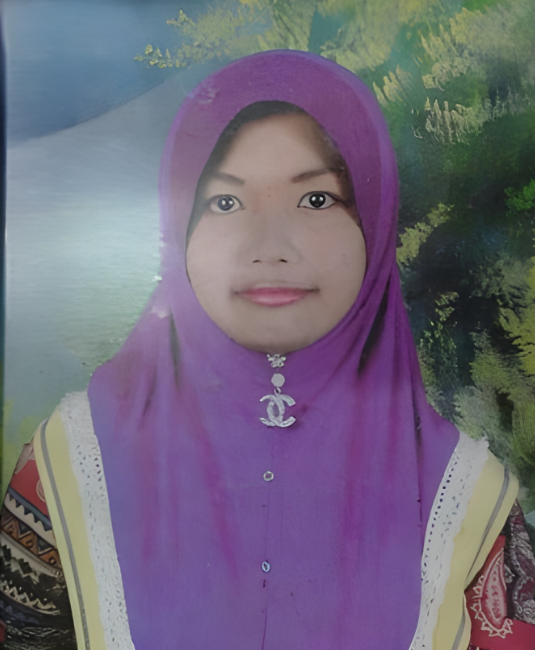
Noor Afiyah Daeng Damin, also known as Nur Afiyah, was a 28-year-old woman who left her hometown with hopes of building a brighter future. She traveled to Malaysia seeking safety, stability, and a steady income through honest work as a live-in domestic helper. Her final employment was in a condominium at Amber Tower, Lido Avenue, Penampang, Sabah. Tragically, instead of security, she found herself trapped in what became a “house of terror.” Her story is a heartbreaking reminder of the urgent need to protect human rights for domestic workers, ensuring they can work in dignity and safety without fear of exploitation or abuse.
The profound cruelty she endured was so severe that when her body was finally discovered, her husband, who came from Indonesia to reclaim her remains, could only identify her by a bangle on her wrist. This heartbreaking detail speaks volumes about the extent of the suffering and dehumanization Afiyah experienced in her final days. Her journey, meant for hope and prosperity, ended in unimaginable pain and injustice, making her case a stark symbol for human rights for domestic workers.
A crucial point regarding Afiyah’s identity emerged during the legal process. While initially reported as Indonesian, later official statements from the Indonesian Consul General in Kota Kinabalu, Muhammad Muhsinin Dolisada, asserted she was a “Malaysian citizen since birth,” born in Johor. This ambiguity highlights the complex identity issues and the shared vulnerabilities faced by all domestic workers, regardless of their official nationality, particularly when trapped in abusive situations. sinardaily
The Perpetrators: A Shocking Betrayal
The individuals responsible for Noor Afiyah’s prolonged suffering and death were her employers, Etiqah Siti Noorashikeen Mohd Sulong and Mohammad Ambree Yunos @ Unos. Their identities and backgrounds added a layer of disturbing contrast to the horror of their crimes.
Etiqah Siti Noorashikeen Mohd Sulong: At 37 years old during her sentencing, Etiqah was once a public figure. She gained recognition as a finalist in MasterChef Malaysia Season 2 back in 2012, where she was known for her gentle demeanor. Beyond her culinary fame, she was also a geology postgraduate working as an engineer with Petronas, a prominent oil company.

This public persona, associated with creativity, professionalism, and success, starkly contrasted with the horrific acts of cruelty she committed in private. This shocking dichotomy amplified public outrage, demonstrating that such extreme abuse can occur in seemingly ordinary or even publicly admired households. During her trial, Etiqah’s defense cited mental health issues, including psychiatric illness and anxiety attacks, and the need to care for her young autistic twin children. However, these claims did not change the court’s ultimate finding of her guilt.
Mohammad Ambree Yunos @ Unos: Etiqah’s ex-husband, Mohammad Ambree, was 44 years old at the time of sentencing. He worked as a contractor and had previously been an airlines officer.

It was Ambree who reported Afiyah unresponsive on December 13, 2021, leading to the discovery of her severely injured body by the police. Throughout the trial, Ambree attempted to minimize his involvement, claiming he tried to intervene in fights between Etiqah and Afiyah. He alleged that Etiqah was the primary aggressor and that she had forbidden him from seeking medical help for Afiyah, fearing it would jeopardize Etiqah’s job. He even claimed that Etiqah had abused him over the years.
However, despite his attempts to shift blame, the court ultimately found that both he and Etiqah acted with “common intention” in the murder of Noor Afiyah. The fact that these individuals, seemingly respectable members of society, could commit such heinous acts underscored the hidden dangers faced by domestic workers. Their case became a chilling example of maid abuse in Malaysia that goes unchecked behind closed doors.
A House of Terror: The Prolonged Abuse
Noor Afiyah’s final days, between December 8 and 11, 2021, were spent enduring continuous torture in the couple’s condominium. Investigators later uncovered a systematic campaign of abuse that defies imagination. This was not a momentary loss of control, but a “prolonged, cruel and deliberate torture.”
Noor Afiyah’s final days, between December 8 and 11, 2021, were spent enduring continuous torture in the couple’s condominium. Investigators later uncovered a systematic campaign of abuse that defies imagination a prolonged, cruel, and deliberate torture. Physical beatings left her with fractures and bruises, scalding burns caused infected wounds, and mutilation through forced tooth extraction inflicted unbearable pain. The perpetrators also subjected her to psychological degradation, including shaving her head as a form of humiliation. By the time of her death, she had lost not only her hair but also her dignity.
This extreme cruelty reflected a complete absence of human rights for domestic workers, highlighting how live-in helpers can be trapped in abusive households without recourse. Likely deprived of food, medical care, and freedom, Afiyah’s suffering exposed the dangers faced by vulnerable domestic employees in private settings. The case stands as one of the most severe examples of domestic worker protection in Malaysia failing to safeguard those it should protect.
Physical Beatings: Afiyah suffered daily physical assaults. She was punched and struck repeatedly, often with objects. Police later seized a PVC pipe and wooden sticks from the apartment, believed to be the weapons used. Her body was found covered in bruises; for instance, one eye was swollen, and her nasal bone was fractured from blunt-force trauma. These repeated beatings were a daily torment.
Scalding and Burns: Some of Afiyah’s most severe injuries were burns from scalding hot liquid. Large patches of her skin on the shoulders, arms, chest, abdomen, and thighs had “sloughed off,” a medical term describing skin peeling away, consistent with severe scald wounds from boiling water. A forensic specialist testified that these extensive burns became grossly infected, leading to necrotising fasciitis a horrific flesh-eating infection – in her arms, shoulder, and legs. This infection spread rapidly, causing septicemia, or blood poisoning, which ultimately proved fatal. The denial of any medical care allowed this deadly infection to take hold.

Mutilation (Teeth Extraction): In a particularly gruesome form of torture, the couple focused on Afiyah’s mouth and teeth. A forensic odontologist (dental expert) found eight cuts inside her lips and mouth, and trauma to six of her front teeth. Two upper front teeth had been partially ripped out. Forensic evidence clearly showed they were “forcibly gripped and partially extracted, likely using non-medical tools such as a pair of pliers,” causing excruciating pain.
The expert rated the pain as “10 out of 10,” emphasizing that no anesthesia would have been used. These mouth injuries were fresh, indicating they occurred shortly before her death and were deliberate torture, not accidental. It was even suggested her jaw might have been broken or severely damaged from the extreme force.
Humiliation and Other Abuse: Beyond the physical torment, the perpetrators subjected Afiyah to psychological degradation. Most notably, they shaved her head completely. Mohammad Ambree himself testified that Etiqah became enraged upon allegedly finding lice in Afiyah’s hair and insisted on cutting her hair as “punishment.” When Afiyah resisted, it escalated into violence, ending with her head being forcibly shaved.
By the time of her death, she had lost not only patches of scalp hair but even her eyebrows were gone. This dehumanizing treatment was part of a broader pattern of control and torment. Afiyah was also likely deprived of proper food, rest, and any medical attention during her captivity. This systematic abuse highlighted the complete lack of domestic worker protection in Malaysia within such private settings.
The Investigation: Uncovering the Truth
The brutal truth of Noor Afiyah’s death began to unravel on the afternoon of December 13, 2021, when Etiqah and Ambree reported their maid unresponsive in their apartment. The couple fabricated a story, claiming they had been away on a short holiday trip to Kundasang and returned to find Afiyah collapsed in the bathroom. They tried to present it as a tragic accident that happened in their absence.
Immediate Suspicions: However, responding police officers immediately noticed signs of foul play. Afiyah’s body was found half-naked on the floor, her head completely shaved an unusual and highly suspicious condition. Her corpse was covered in visible injuries: extensive bruising, swelling, and severe burn wounds, all inconsistent with any natural cause of death. Investigators also noted a strong odor of cleaning agents in the home, suggesting an attempt had been made to clean the crime scene before authorities arrived, likely to wash away blood or bodily fluids. The overall scene instantly raised suspicions, and the couple’s story quickly unraveled.
Arrest and Autopsy: Under scrutiny, police detained both Etiqah and Ambree by the next day. On December 14, 2021, just one day after their report, they were arrested on suspicion of murder. Ambree later recounted that about 20 police officers arrived on the night of December 13, searched the apartment, and seized crucial evidence like phones, pipes, and other potential weapons, effectively taking the couple into custody that night.
A post-mortem examination on December 16, 2021, confirmed the truly horrific extent of Afiyah’s injuries. Forensic pathologist Dr. Jessie Hiu testified that Afiyah had 33 distinct external injuries on her body, ranging from puncture wounds on her head and face to lacerations and burns all over. Crucially, the autopsy determined the cause of death to be necrotising fasciitis (flesh-eating infection) due to infected wounds, compounded by septicemia (blood poisoning). In plain terms, Afiyah’s multitude of untreated injuries especially the burn wounds became severely infected, causing a rapid, systemic infection that killed her. This forensic conclusion made it abundantly clear that her death was a direct result of the prolonged abuse and the cruel denial of medical care.
The Damning Digital Evidence: case was found on the suspects’ mobile phones. Police recovered videos and photos that documented their torture of Afiyah in real time, a shocking detail that underscored the severity of this Malaysian justice system maid abuse case. These recordings captured the perpetrators in the act, proving the torture was deliberate and premeditated.
The decision to preserve such cruelty on camera revealed a chilling intent. As Deputy Public Prosecutor (DPP) Dacia Jane Romanus described, it showed the “cold desire to record and preserve the suffering of the deceased.” This evidence became central in court, proving the attackers’ identity, the intentional nature of the injuries, and their joint participation, ultimately fulfilling the legal definition of “common intention” and sealing the prosecution’s case.
As Deputy Public Prosecutor (DPP) Dacia Jane Romanus described, it revealed the “chilling intent to record and preserve the suffering of the deceased.” This digital evidence became a centerpiece in the prosecution’s case, as it conclusively proved both the identity of the attackers, the deliberate nature of the injuries, and that both Etiqah and Ambree actively participated, fulfilling the legal criteria of acting in concert, or “common intention.” This overwhelming evidence was pivotal in achieving justice for Noor Afiyah in the Malaysian justice system maid abuse case.
The Path to Justice: Legal Proceedings and Verdict
The legal process for the Noor Afiyah Daeng Damin murder case began swiftly. On December 29, 2021, Etiqah and Ambree were formally charged with murder under Section 302 of the Malaysian Penal Code, read together with Section 34 (common intention). This charge typically carries the death penalty or, following recent reforms, 30-40 years imprisonment plus whipping.
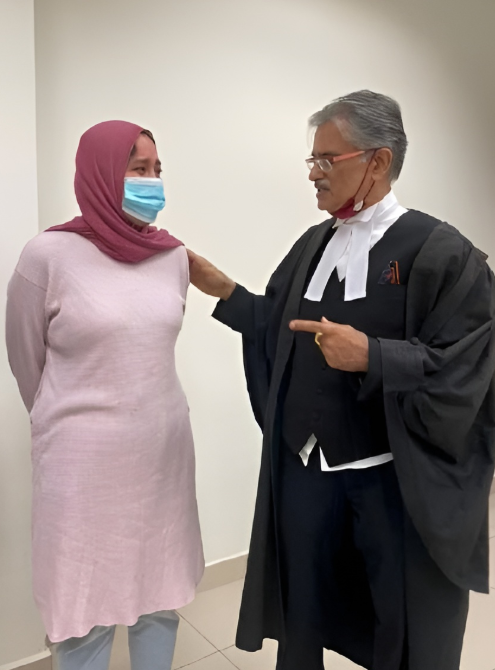
Bail Controversy and Public Outrage: While murder charges are usually non-bailable in Malaysia, Etiqah petitioned for bail. Initially denied, the Court of Appeal controversially granted her bail of RM30,000 in April 2022 under “special circumstances.” Her lawyers argued she had mental health issues and needed to care for her young autistic twin children. This highly unusual decision media even termed it a “rare bail” for a murder suspect ignited widespread public outrage. News that a high-profile accused, with such gruesome evidence against her, was free pending trial did not sit well with the public.
Many Malaysians took to social media to express anger, questioning how someone accused of torturing a maid to death could walk free, even temporarily. Human rights groups and migrant worker advocacy organizations voiced strong concern, fearing that justice might be undermined and noting the double standard often faced by migrant worker victims.
Amid this intense public backlash, by early 2023, authorities moved to tighten the reins. The couple’s bail conditions were likely revisited, and their freedom curtailed. They were reportedly re-arrested on February 17, 2023, coinciding with the case being committed to the High Court for trial, ensuring they remained in custody as the murder trial loomed.
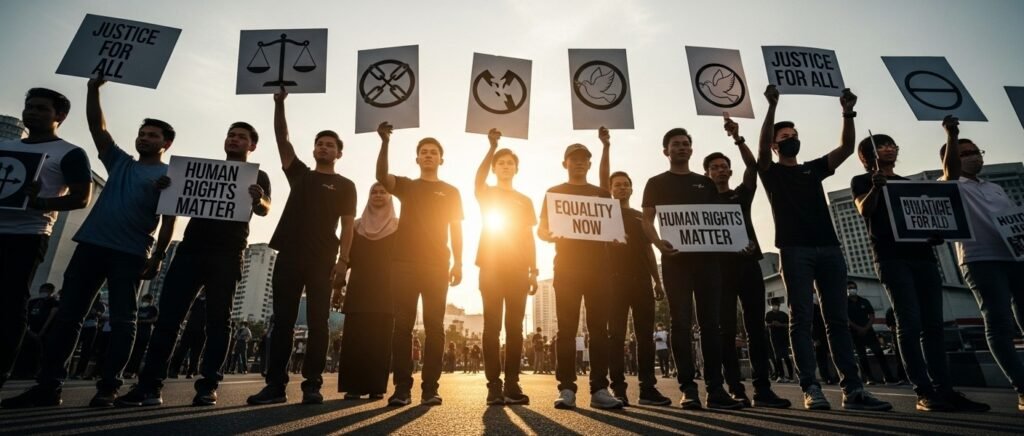
The Trial Unfolds: The murder trial, while experiencing some delays, eventually commenced in the High Court in mid-2024, with Judge Datuk Dr. Lim Hock Leng presiding. On November 17, 2022, both Etiqah and Ambree formally pleaded not guilty, opting to contest the charge and setting the stage for a full trial.
The prosecution presented a compelling case, calling 17 witnesses, including forensic experts, police investigators, and others connected to the case. By October 2024, after the prosecution’s case, the court found sufficient evidence and ordered both accused to enter their defense.
During the defense stage, Ambree took the stand, attempting to minimize his role. He claimed Afiyah was alive (though “weak”) when he left for a holiday on December 11, 2021, suggesting she might have died in his absence. He also alleged Etiqah was the primary aggressor, citing recurring fights and even claiming he “warned Etiqah not to do it again” after earlier abuse.
However, he admitted he did not effectively stop the abuse or get Afiyah medical help, ostensibly because Etiqah forbade it to avoid trouble. Etiqah, for her part, also denied responsibility, with each defendant trying to pin blame solely on the other. This mutual finger-pointing, however, did not exonerate either. The judge noted the pair “raised a range of defences in their attempts to implicate each other,” but ultimately these did not create reasonable doubt of their joint guilt.
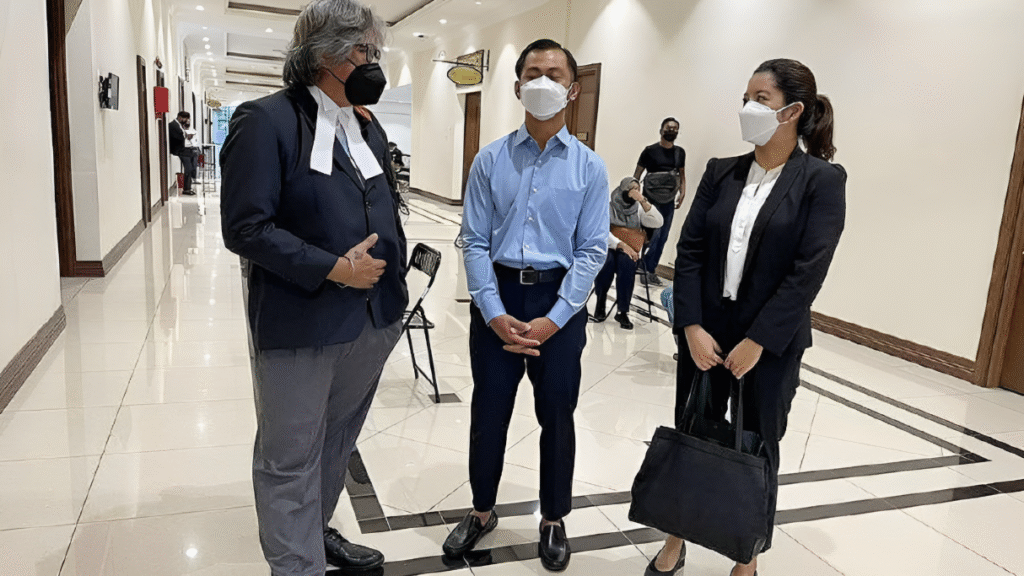
Throughout the trial, the forensic and digital evidence spoke the loudest. Experts like Dr. Norhayati Jaffar (forensic odontologist) detailed the torture injuries, such as the plier-induced dental trauma, which could only be intentional. Dr. Jessie Hiu (forensic pathologist) explained how the pattern of wounds and infection proved prolonged abuse as the cause of death. The harrowing videos and photos recovered from the accused’s phones were presented in court, leaving little doubt of what transpired and who was responsible.
This trove of evidence established the critical elements of the offense beyond doubt: that Afiyah died from injuries, that those injuries were deliberately inflicted, and that both Etiqah and Ambree acted with the intent to cause those injuries (common intention). The evidence was overwhelming, and the defense failed to cast reasonable doubt, leading to a just outcome for domestic worker protection in Malaysia.
The Sentence: A Measure of Justice
On June 20, 2025, the High Court delivered its judgment in what has become one of the most disturbing examples of Malaysian justice system maid abuse. Judge Datuk Dr. Lim Hock Leng found both Etiqah and Ambree guilty of murder under Section 302 of the Penal Code, proven beyond reasonable doubt through overwhelming evidence. The court ruled they acted with common intention, rejecting attempts to shift blame. Under Malaysian law, murder once carried a mandatory death sentence, but legal reforms now allow for prison terms of 30–40 years. Considering the brutal facts, the judge sentenced each to 34 years, near the maximum, and ordered caning for Ambree.
Prosecutors argued this Noor Afiyah Daeng Damin murder case warranted the death penalty, calling it among the “rarest of the rare” due to its cruelty. While the law spared their lives, the court’s sentence sent a strong message on the seriousness of maid abuse in Malaysia. The court specifically ruled that the accused acted with common intention in torturing Afiyah to death. The judge remarked on the coordinated nature of the abuse, rejecting the accused’s attempts to blame each other. Both were equally culpable in the eyes of the law for what he termed a “prolonged campaign of cruelty” against their victim.

The Punishment: Under Malaysian law, murder traditionally carried a mandatory death penalty. However, in 2023, Malaysia reformed the law to remove mandatory capital punishment. Prosecutors nonetheless urged the court to consider this case among the “rarest of the rare” that still deserved the death penalty due to its extreme brutality. DPP Dacia Jane Romanus argued that the “case had shocked not just Sabahans, but the nation as a whole,” warranting the full weight of justice.
She painted the murder as a uniquely horrific example of sustained torture, emphasizing how Afiyah was an innocent who “was subjected to daily torment, denied basic rights, and robbed of her life” by those entrusted with her care. She also poignantly noted that Afiyah’s body was so mutilated that her husband (in Indonesia) could only recognize her by a bangle on her wrist when reclaiming the remains – underscoring the cruelty she endured.
Taking into account the new sentencing guidelines and the mitigation factors presented by the defense (such as Ambree being a first-time offender with young children, and Etiqah’s alleged mental health issues), Judge Lim Hock Leng opted not to impose death. Instead, on June 20, 2025, he sentenced Etiqah and Ambree each to 34 years in prison. This lengthy custodial sentence is near the upper end of the 30–40 year range allowed for murder when the death penalty is not applied.
In addition, Mohammad Ambree was ordered to receive 12 strokes of the cane (rotan), which is the minimum whipping required by law for such an offense. Etiqah, however, was exempted from caning due to Section 289 of the Criminal Procedure Code, which prohibits corporal punishment for female convicts. The judge explained that the sheer barbarity of the crime outweighed the mitigation factors. “The cruelty suffered by the deceased” and the “manner in which [the injuries] were inflicted over time” were key considerations in sentencing.
The judgment stressed that this was not a heat-of-the-moment act but deliberate torture that spanned days, which society cannot tolerate. Public interest and the need for deterrence were paramount in deciding the sentence. Both convicts were ordered to begin serving their prison terms immediately from the date of conviction. Their bail was revoked, and they were led off to prison following the verdict. While they retain the right to appeal, this verdict represented a significant moment in the Malaysian justice system maid abuse cases.
Beyond the Courtroom: A Call for Change in Domestic Worker Protection
The outcome of the trial brought a mix of relief and grim satisfaction to the public, as the Noor Afiyah Daeng Damin murder case had been followed with horror for over three years. This high-profile instance of Malaysian justice system maid abuse ignited national reflection on the treatment of domestic helpers, reinforcing the urgent call for stronger domestic worker protection in Malaysia. Advocacy groups stressed that Afiyah’s ordeal was not isolated but part of a pattern of maid abuse in Malaysia.
The “prolonged campaign of cruelty” showed how vulnerable live-in workers can be, especially during crises like the COVID-19 pandemic. Many likely face restrictions on movement, withheld wages, and denial of medical care. Human rights organizations and foreign governments urged reforms, while the High Court’s verdict served as both justice for Afiyah and a deterrent against future abuse. Judge Lim’s remarks emphasized that such cruelty can occur even in “respectable” households, making vigilance and enforcement essential.
Many felt that 34 years in jail (effectively keeping them incarcerated until they are in their 70s) plus caning for Ambree was an appropriate punishment given the unimaginable cruelty. Some, including human rights observers, noted that while harsh, the sentence stopped short of death, reflecting Malaysia’s shift away from capital punishment yet still delivering a punitive outcome. In Indonesia, where Afiyah was from, news of the verdict was also covered, as Noor Afiyah Daeng Damin murder case had been closely followed by migrant worker advocacy groups.
Systemic Failures and Human Rights: This case became a rallying cry for better domestic worker protection in Malaysia. Advocacy organizations pointed out that Afiyah’s case is unfortunately not an isolated incident; there have been other instances of maid abuse in Malaysia, some fatal, over the years. The “prolonged campaign of cruelty” in this case underscored how vulnerable live-in domestic helpers can be to abusive employers behind closed doors. Afiyah’s suffering happened during the COVID-19 pandemic, when she likely had even less chance to escape or seek help.
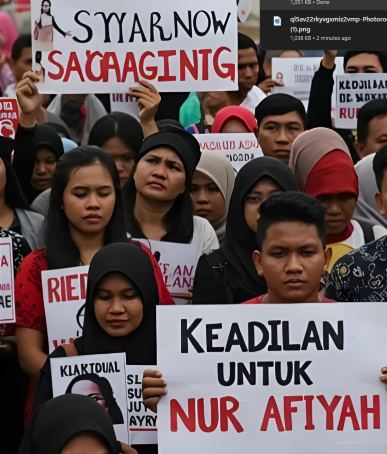
Her passport and freedom of movement may have been restricted, and she was denied wages and prevented from returning home, highlighting the exploitative conditions many migrant maids face.
Malaysian civil society and Indonesia’s government officials alike have since called for urgent reforms. The case has spurred crucial discussions on measures such as:
- Stricter Screening and Monitoring of Employers: Ensuring that employers, especially those hiring foreign maids, have no history of abuse and that workers have safe channels to report mistreatment. Neighbors and community members are also urged to be vigilant, as early alerts could save lives.
- Improved Legal Protection for Domestic Workers: Unlike other workers, domestic helpers in Malaysia have historically had limited protections under labor laws, often being excluded from the Employment Act’s standard provisions. Activists demand explicit regulations on working hours, off-days, the prohibition of passport confiscation, and clear avenues for domestic workers to lodge complaints. There are strong calls to ratify laws that better align with international standards for human rights for domestic workers. The extreme nature of Afiyah’s case is being used to argue that even one case like this is too many, and systemic change is desperately needed.
- Bilateral Agreements: Indonesia has been particularly concerned about the safety of its citizens working as maids abroad. This case, along with others, adds pressure on Malaysia and Indonesia to strengthen their bilateral agreements on the placement and protection of Indonesian domestic workers. Ensuring proper recruitment (to avoid undocumented workers who are even more at risk) and mechanisms for Indonesian embassy or consular staff to check on workers’ welfare periodically are high on the agenda.
The High Court’s verdict and remarks also send a powerful deterrent message: even without the death penalty, Malaysia’s courts will impose long prison terms for those who brutalize domestic workers. In his judgment, Judge Lim stated that such abuse “remains an issue, even among the most seemingly ‘ respectable’ employers,” and that the law must reflect the value of a human life regardless of the victim’s status. The verdict, according to local media, “serves as a grim reminder that abuse of domestic workers remains an issue… and underscores the urgent need for better protection and oversight for vulnerable workers in Malaysia.”
Conclusion: A Legacy of Vigilance
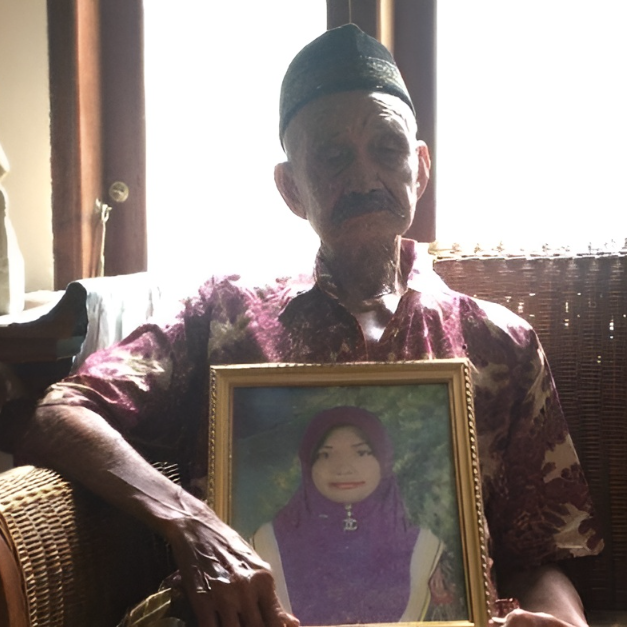
Noor Afiyah’s tragic end has thus become a symbol. Her name now evokes the hidden suffering that many domestic workers endure, driving ongoing campaigns in Malaysia urging society to “demand better accountability and compassion for all lives, regardless of status or citizenship.” While justice has been served on the perpetrators in a court of law, the story of Noor Afiyah leaves a lasting impact. It is a somber cautionary tale of how cruelty can fester behind closed doors and how crucial it is to protect those who are most vulnerable.
Afiyah’s profound suffering and tragic death spurred deep national reflection on the treatment of domestic helpers across Malaysia. As one commentator aptly noted, this case transcended mere punishment for the guilty; it profoundly “shocked the conscience” of the nation. This awakening instills hope for meaningful systemic changes, specifically aimed at ensuring no other worker ever endures such horrific maid abuse in Malaysia.
Her poignant memory now serves as a powerful call for continuous vigilance and vital reform efforts. Ultimately, “Justice for Afiyah” extends beyond merely penalizing her abusers, embodying a steadfast commitment to actively prevent similar atrocities from unfolding. The crucial fight for comprehensive domestic worker protection vigorously persists, eternally fueled by Noor Afiyah’s devastating legacy.
She built a business to save her family, but her success fueled her husband’s secret life. When she discovered his betrayal, she used the very symbol of her hard work a giant teddy bear to hide her horrific revenge. This is a story you won’t forget. Read the full story.















